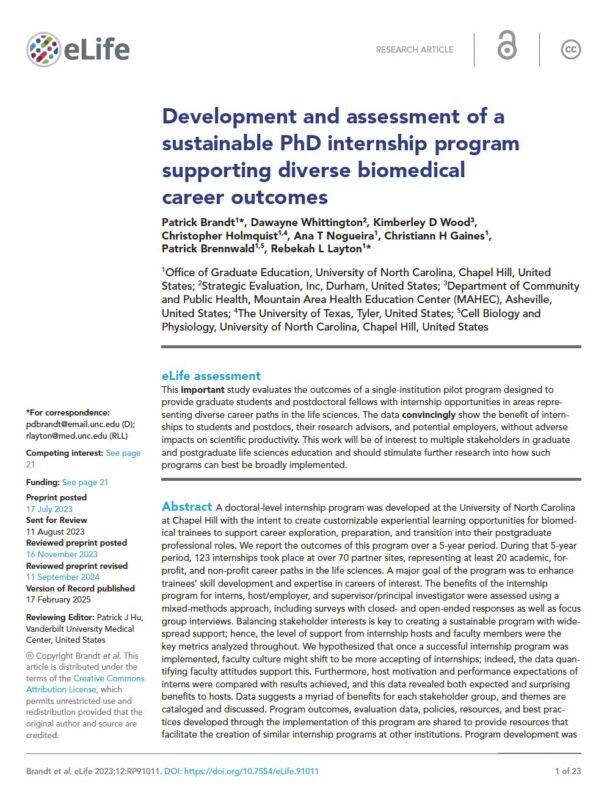Recommended audience(s):
PhD students/post-docs, internship hosts, research advisors, and personnel responsible for developing internship programs
Review prepared by:
Sahil Nagpal, Ph.D
The study evaluates the Immersion Program to Advance Career Training (ImPACT), a doctoral-level internship program at the University of North Carolina designed to enhance trainees’ skill development and expertise in their areas of interest. Conducted over five years, the program facilitated 123 internships with 70 host organizations, offering 160-hour internships either full-time for four weeks or part-time over 2–3 months in various life sciences fields such as pharmaceutical research and development, regulatory affairs, medical affairs, and college teaching. These internships typically took place in the final 1-2 years before graduation. Evaluation included surveys with both closed- and open-ended responses and focus group interviews that were collected from interns, internship hosts, and research advisors to understand the benefits for each group, long-term career impact, and impact on the attitudes of research advisors. Findings showed clear benefits for the interns, with 95–97% reporting that the internship experience provided valuable networking and professional development opportunities, expanded their professional network, and increased their competitiveness in the job market. Hosts benefited from access to skilled candidates, collaboration with universities, fresh perspectives, and contributions to product development. Nearly 75% of hosts were highly likely to offer career positions to their interns. Research advisors and labs saw project advancements, returning interns with enhanced motivation and skills, and increased competitiveness for tenure-track positions. Additionally, there was a significant shift in faculty support over the five years, particularly for 1-month internships, which reached a 92% approval rate. Establishing an open-source repository of evaluation forms and host-outreach strategies would enhance replicability. Overall, the study highlights the mutual benefits of structured internships for trainees, faculty, and host organizations, supporting smooth career transitions and professional growth.

